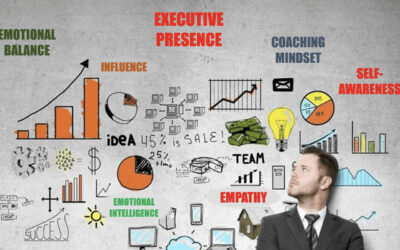We know that diversity, equity and inclusion needs span a vast range: executive coaching for your DEI leaders and DEI allies, coaching others on sensitive topics including DEI issues, and even training for your wider population on how your company approaches diversity, equity and inclusion. We have you covered on all those fronts, and crucially, we have a variety of DEI coaches who can deeply understand the needs and challenges of your employees around these issues.
Our diverse and expert coaches can support the leaders who are grappling with their own experience or those of other DEI employees, provide training in DEI issues for allies and others, or integrate topics of diversity and inclusion into the coaching of employees for whom this is a new conversation.
Challenging coaching calls for those with the compassion and expertise to handle to conversation.

Coaching for DEI Leaders and Allies
Expert, Certified, Diverse Coaches

We coach in the Diversity, Equity and Inclusion Space:
Senior leaders
DEI allies
Group programs that include DEI topics
Workshops on Equity and Inclusion
Keynotes on Ally-ship
Certified, experienced, diverse coaches
Our DEI Coaching Philosophy: Insight + Action = Results
Coach Selection Process
In order to deliver the most value to our clients and their companies, we believe that it’s critical that an executive chooses a coach whose style matches their personality—that’s why we encourage our clients to interview up to three of our coaches to guarantee the best fit.
Diverse, Experienced Coaches
Real Results
Convenience and Flexibility
The Arden Difference
The Power of the Arden Process

Selection
First things first: we set up an initial conversation to help determine the appropriate program for the executive, as well as set up interviews with the three coaches that are the best fit for their needs and goals. In this stage, we are looking to match the executive’s style with that of the coach to create a coaching relationship that delivers maximum results.

Alignment
At the start of each engagement, the coach, the executive, and their supervisor meet to determine the goals of the coaching. Because all of our executive coaching programs are results-driven, it’s critical to set appropriate goals and ensure that the executive, the supervisor, and the company can all realize the benefits of the coaching.

Assessment
When an executive enrolls in a program with the intent to change, measuring the ability and skill level at the outset is a critical first step in setting goals and building a plan to reach them. The coach will select from an array of assessments to select the tools best suited to help the executive gain insight into their unique style and potential areas for growth.

Work the Plan
With feedback from colleagues and a personalized development plan in place, the executive and the coach work through the strategy. They meet regularly to discuss challenges, best practices, and successes, with the coach helping the executive identify and understand their patterns, as well as focus on opportunities for improvement. At the midpoint of the partnership, we once again assess the executive’s progress through a meeting with their supervisor and course-correct, if needed. At the conclusion of the engagement, the executive, supervisor, and coach review the progress and identify any next steps necessary to continue the executive’s growth to ensure a long-term shift in behavior.
Executive Coaching and Leadership Blogs
4 Essential Traits for Leading Organizational Change
Leading Organizational Change - Big changes were coming to Brandon’s architectural and engineering firm. Senior leadership wanted to move away from several markets it had historically served and...
Go With Your Gut: Intuition and Managerial Decision Making
By Katherine Poehnert, MEd Psych, PCC Intuition and Managerial Decision Making - Making a choice or decision can be tough for many people, although I did hear that looking into a mirror is good, as...
How to Find the Time for Consistent Leadership Development and Training
We recently wrote about the importance of consistent coaching, training, and repetition for leadership development and training. In fact, consistency and repetition is critical for almost anything...
How to Find the Time for Consistent Leadership Development and Training
We recently wrote about the importance of consistent coaching, training, and repetition for leadership development and training. In fact, consistency and repetition is critical for almost anything...
Tips for Business Leaders: Slow Down to Go Faster
By José Morales, MBA, MS, PCC Perhaps we need to slow down to go faster! Very often these days, it seems that our world is spinning ever faster. Things everywhere are changing, established orders...
Mindset and Personal Change: Climb the Ladder of Inference
Personal change begins with your mindset. As an executive coach, I’ve seen time after time that awareness and appreciation of your mindset — how you “see” things; how your beliefs and assumptions...
Decision Making Tips For Managers: Shine the Spotlight “Offstage”
By Neal Eisenstein, MBA, MCC Decision Making Tips For Managers Decision making is a critical leadership skill that surfaces often in the work of coaching. It can be fraught with all sorts of...
Critical In-Person Meeting Tips: Use a Facilitator
As organizations rethink their long-term work options — such as work-from-home, in-office, and hybrid arrangements — larger departmental, divisional, and company-wide meetings are making a comeback....
Project Plan for Self-Transformation
By Roberto Giannicola, PCC Most people I work with have created project plans for their technical work, inventions, products, or constructions. And yet, when it comes to their personal growth, they...








